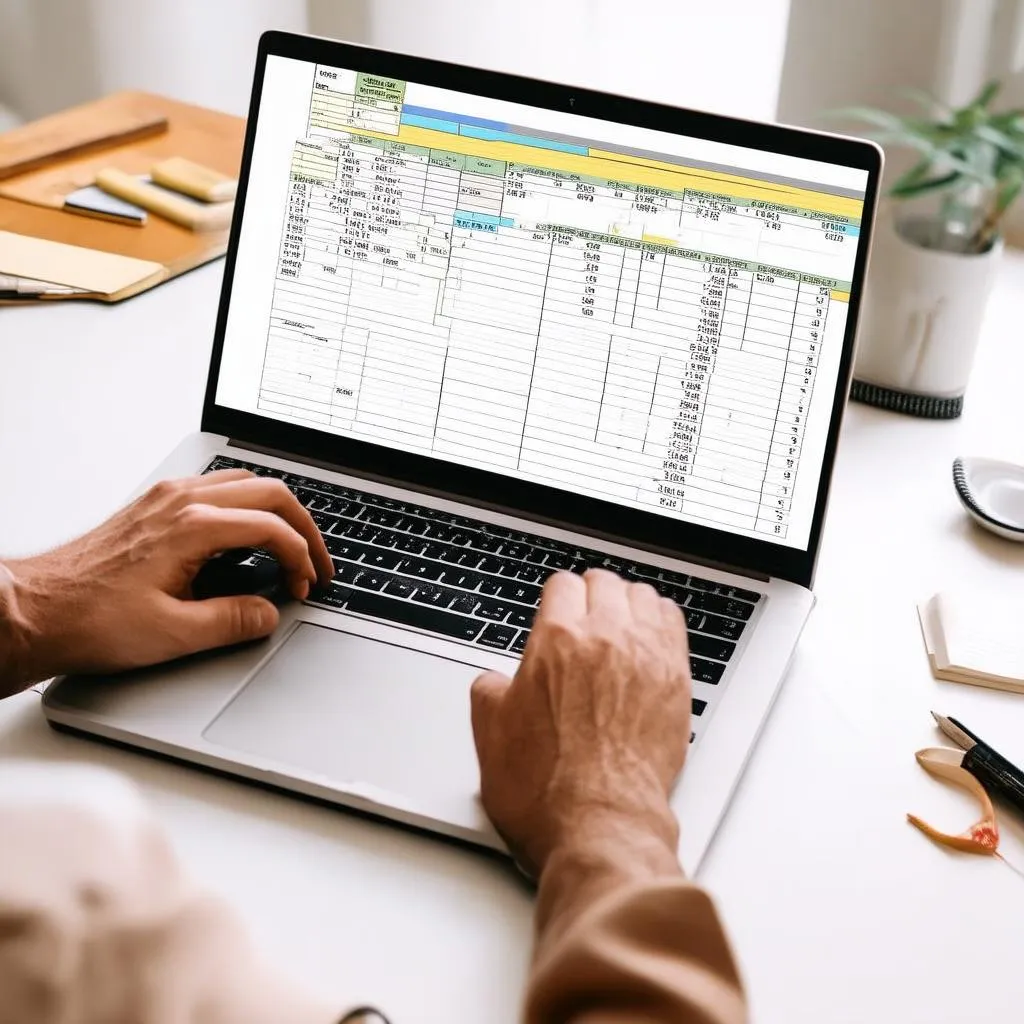The IELTS Speaking test is designed to assess various language skills, including fluency, coherence, lexical resource, grammatical range, and pronunciation. As part of this test, you may encounter the question, “Describe a time when you managed a budget.” This type of question aims to assess your ability to articulate experiences, use appropriate vocabulary and display clear organization in your answers.
Understanding the criteria that IELTS Examiners look for can significantly boost your performance. Typically, examiners value the ability to maintain a coherent and engaging story, employing a broad range of vocabulary and complex grammatical structures, and demonstrating accurate and natural pronunciation.
In this article, we will explore effective strategies to tackle the question “Describe a time when you managed a budget,” offering a comprehensive breakdown of how to structure your responses across the three parts of the IELTS Speaking test.
Part 1: Introduction and Interview
Common Questions
In Part 1, examiners often ask straightforward questions about your background, work, studies, or hobbies. These questions help both you and the examiner ease into the speaking test.
Example Question:
- How do you usually manage your finances?
Suggested Answer:
“I usually track my expenses meticulously using budgeting apps. I prioritize essential expenses like rent, utilities, and groceries first, and then allocate the remaining for savings and discretionary spending. This approach helps me to stay financially disciplined and ensures I’m always prepared for any unexpected costs.”
Analysis:
- track my expenses meticulously: Demonstrates precise and careful management.
- prioritize essential expenses: Shows decision-making skills.
- stay financially disciplined: Highlights responsibility and foresight.
Part 2: Cue Card (Long Turn)
Sample Cue Card
Describe a time when you managed a budget. You should say:
- When it was
- Why you had to manage the budget
- How you felt about it
- And explain how successful you were in managing it
Suggested Answer:
“One significant instance when I managed a budget was during my final year at university. I decided to take on the responsibility of organizing our class trip, which required meticulous budgeting.
Firstly, I had to draft a comprehensive plan to estimate all potential expenses, including transportation, accommodation, food, and entertainment. Secondly, I needed to collect money from my classmates and ensure that everyone was aware of the budget constraints. As we finalized the trip details, I kept track of all expenditures and used a spreadsheet to ensure everything was accounted for.
<
Although it was a demanding task, I felt a great sense of accomplishment managing this budget. It taught me valuable lessons in financial management, negotiation, and coordination.
Ultimately, the trip was a huge success, and I even managed to save some money, which was later used for a small party at the end of our trip. This experience boosted my confidence in handling financial responsibilities.”
Bullets Points Analysis:
- draft a comprehensive plan: Using higher-level vocabulary to explain actions.
- collect money: Describes the process clearly.
- accomplishment: Expressing feelings and reflections on the experience.
- boosted my confidence: Highlighting personal growth.
Part 3: Two-way Discussion
Examiner’s Questions
In Part 3, the examiner may ask follow-up questions related to the topic discussed in Part 2, but at a more abstract level.
Example Question:
- Why is it important for individuals to learn to manage budgets effectively?
Suggested Answer:
“It’s crucial for individuals to learn budget management as it instills financial discipline and promotes long-term financial stability. Effective budget management ensures that people can live within their means, avoid falling into debt, and set aside savings for future needs or emergencies. Additionally, mastering budget management skills can reduce stress related to financial uncertainties and helps individuals achieve their financial goals more systematically.”
Key Vocabulary and Phrases:
- financial discipline
- long-term financial stability
- live within their means
- falling into debt
- future needs or emergencies
Essential Vocabulary and Phrases
Key Terms and Structures
-
Track (verb): Monitoring or keeping an accurate record.
- Example: “I track my daily expenses using a mobile app.”
-
Allocate (verb): To distribute resources or duties for a particular purpose.
- Example: “I allocated a portion of my salary to savings.”
-
Expenditure (noun): The action of spending funds.
- Example: “The government’s expenditure on public services has increased.”
-
Comprehensive (adjective): Complete and including all elements.
- Example: “We conducted a comprehensive review of our budget.”
-
Foresight (noun): The ability to predict or the action of predicting what will happen or be needed in the future.
- Example: “She showed great foresight by setting aside emergency savings.”
Tips for Scoring High in the Speaking Test
Practice Regularly
Consistent practice is key to enhancing fluency and coherence. Try to speak English daily, record yourself, and seek feedback from proficient speakers or teachers.
Expand Your Vocabulary
Work on expanding your lexical resource by learning new words and phrases related to common IELTS topics. Use flashcards, read extensively, and engage in conversations that challenge your vocabulary usage.
Focus on Pronunciation
Even if you have a wide range of vocabulary and good grammar, poor pronunciation can affect your band score. Practice speaking clearly, focusing on your intonation, stress, and rhythm.
Plan and Structure Your Answers
Take a few seconds to organize your thoughts before responding. Structuring your answers logically can help you maintain coherence and fluency during the test.
Be Confident and Relaxed
Confidence can significantly impact your performance. Practice relaxation techniques, such as deep breathing, to calm your nerves before and during the speaking test.
For more guidance on managing responsibilities, you might find our articles Describe a time when you managed a project from start to finish and Describe a situation when you had to manage a project helpful.